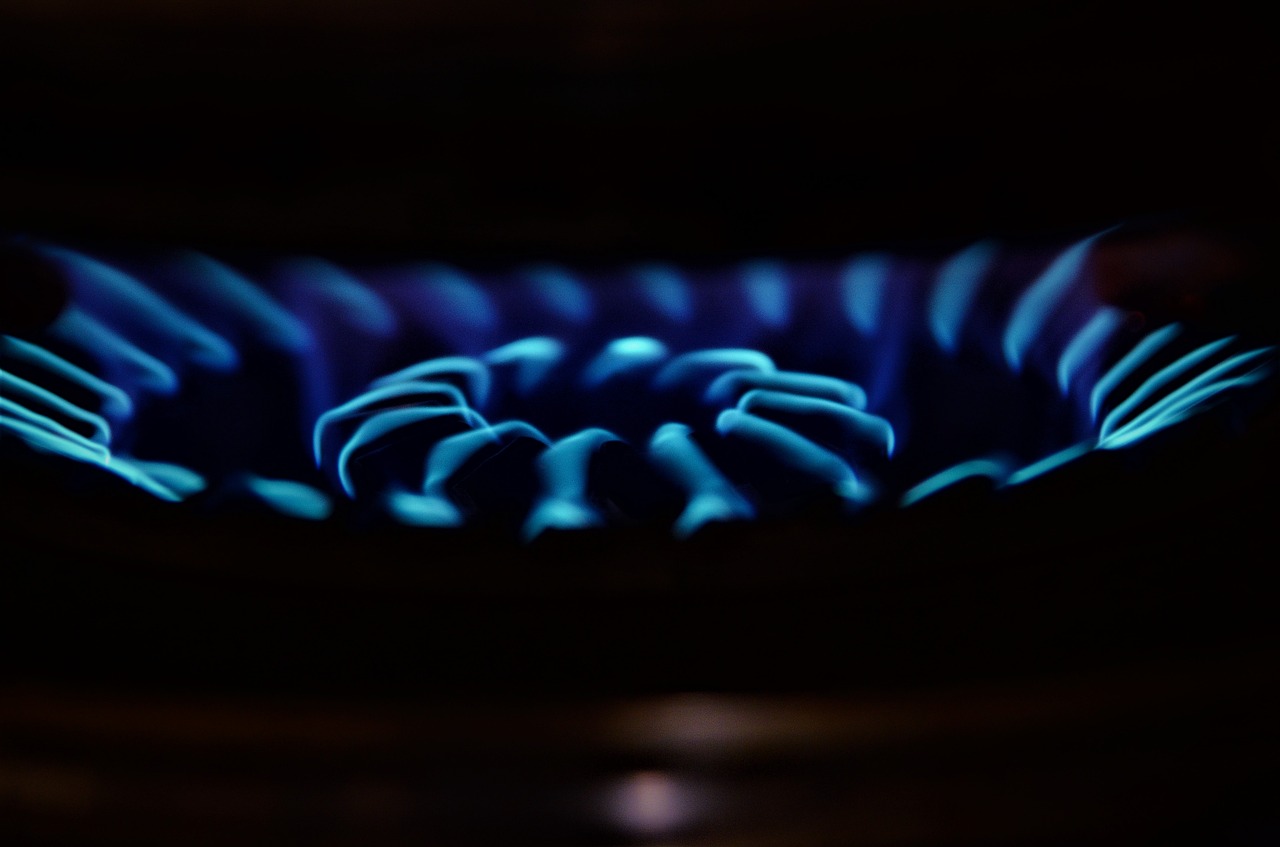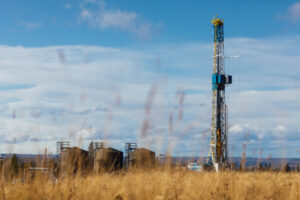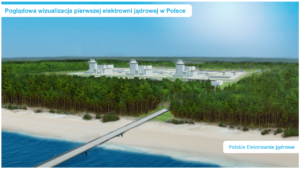„Hopes that being agreeable will keep the flow of Russian gas to Europe are false. Moscow is escalating to reduce support for Ukraine. The remedy is the seventh package of sanctions undermining the Russian gas sector and preparing for the worst,” writes Wojciech Jakóbik, editor-in-chief at BiznesAlert.pl.
Destruction of demand in the gas market by Gazprom
Gazprom has cut gas supplies to Europe by a third, and it must be acknowledged that it is doing this to paralyze the Old Continent, so that it fails to adequately support Ukraine. In the first half of 2022 it transferred less gas to Europe by 30 percent in comparison to the same period in 2021, which is 68.9 bcm. This means gas exports from Russia to Europe fell by about 30 bcm in the first half of the year. At the same time, the decline in gas demand in Europe reached 27 billion cubic meters. These figures suggest that the decline in supply from Russia is followed by the destruction of demand, caused by the exorbitant prices that are soaring due to Russia, which is fuelling the energy crisis. According to the REPowerEU program, Europe will reduce demand by one third in 2022, i.e. by 55 bcm, and in the middle of the year the EU is already close to this goal. Russia, which invaded Ukraine, is demolishing its market, but this process will not happen quickly enough to avoid restrictions on gas consumption in Europe, which is still dependent on supplies from Russia. Gazprom’s problems are also signalled by the fact that it had to deprive its shareholders of dividends, because the Kremlin forced it to invest in putting gas pipelines across the country and increasing supply to the internal market. In result the company’s stocks dived by a few dozen percent. This is how it paid for the Kremlin’s policy in 2015 after the annexation of Crimea, when Ukraine, which is the second largest market after Germany, abandoned the agreement with it. Meanwhile, Russia has no alternative to its own gas policy in the face of sanctions that exclude new international projects and freeze Nord Stream 2, a highway to the premium market that wants to get rid of the main supplier from Russia.
It is for this reason that Germany is preparing for the possibility of reducing gas consumption by industry. They are already running information campaigns on saving gas. They also admit that they may introduce „alert” notices on the market for the industry in order to maintain supply to households. This pedagogy of scarcity contributes to changing the behavior of consumers, who further reduce gas consumption, encouraged by the high prices and the spectre of them growing even higher. This is probably the reason for the reduction in fuel consumption seen in Gazprom’s data. This is an important source of security in addition to the diversification of supplies, which will not be fast enough to allow the gas sector to operate unhindered this winter in the event of a complete halt to supplies from Russia, and this is something to be reckoned with. Again, Germany is already taking this into account, admitting to fears that the planned technical break of the Nord Stream 1 gas pipeline from Russia will turn into a „political break” without an end date.
De-escalation versus preventive war
These concerns are behind the conciliatory policy of the German Chancellor, who called for excluding the transit between the Russian Federation and the Kaliningrad exclave from sanctions. „I believe that all parties involved are currently making great efforts to establish a de-escalation dynamic here,” Scholz said, quoted by Politico. This is how the scenario written by the Kremlin is playing out. Lithuania cut off selected supplies to the region in line with EU sanctions, to which Russia responded with an escalation in the form of threats, which unfortunately had an effect in western Europe and led to the erosion of the sanctions regime in this section. This is the implementation of the doctrine of de-escalation by escalation, which is also applied to the gas market. The West should not succumb to it, especially that it would only encourage Russia to continue to escalate, contrary to the hopes of the German Chancellor.
The alternative is to prepare for the crisis of gas supplies from Russia, which may occur at any time. This is heralded by the existing elements of escalation: the ruble ultimatum and the game around Nord Stream 1. These pretexts are reducing Russian gas transit, and Moscow will continue to turn up the heat irregardless of what the West does. While hopes that being agreeable will keep the flow of Russian gas to Europe are false. Therefore, we should prepare for gas shortages, unfilled gas storage facilities before the heating season and introduce consumption restrictions now where possible. Such a scenario seems to be implemented by Germany in the areas under the control of the Ministry of Economy and Climate under the leadership of Robert Habeck of the Green Party, who pursues a policy different from the chancellor of the socialist and post-communist SPD. This rift is being exploited by the Russians.
The next package of EU sanctions may include restrictions on the gas market. A maximum price for the supply of hydrocarbons, including gas, is being considered, which would limit Russia’s revenues and at the same time not stop the supply. Ukrainians also demand that all exports from Russia be redirected to their gas pipelines to maintain the stability of the Ukrainian system, without which political destabilization over the Dnieper is possible in the event of a complete cessation of Russian supplies. However, it is worth remembering in this context that it is the Russians who have their hand on the tap and at any moment can twist it to the end. Therefore, the most ambitious solution, and at the same time one that gives the greatest independence from the Kremlin’s machinations, would be to voluntarily give up Russian supplies while the holidays are underway, gas consumption is limited and there are still 12 months to prepare the European economy for shortages in the heating season. The negative economic consequences of the Russian gas cut-off must then be taken into account, but it is not clear whether they can be avoided at all. First of all, if Russians continue to escalate, and there is no reason to think otherwise, the economic impact will come regardless of European policies. Secondly, the recession in the West can last longer if its fate depends on the supply of Russian gas, so the voluntary stop of imports from this direction may deepen the problem, but will shorten its duration, because in the long term sanctions against Russia will benefit the economy, as I have written elsewhere. This means that the Kremlin’s logic of de-escalation by escalation must be answered with the logic of a preventive war on the gas market, that is, actions ahead of Moscow’s moves, as I proposed in the case of support for Moldova even before the Russian invasion of Ukraine.
Peace, sanctions, solidarity
The political dispute in Europe suggests that it is unlikely that the most stringent sanctions against Russia will be imposed in the seventh round. However, other solutions, such as a price cap on hydrocarbon supplies, will be met with a response from the Kremlin, whose actions suggest the logic of de-escalation by escalation, and therefore predict gas shortages in the winter. Some European countries will be in a better position than others, such as Poland, Lithuania and Romania, identified by Fitch as being best prepared for the supply crunch due to Lithuania-Poland diversification and in case of Romania – domestic deposits. They are likely to share their supplies with their neighbours in accordance with the SOS security of supply regulation, which means that they have to conserve gas even in their markets. It is necessary to prepare a joint action plan now, because the clock is ticking, and the heating season is getting closer. Vladimir Putin will try to add fuel to the fire, so that Europe’s attitude to Ukraine cools as much as possible. Without a proper plan, the energy crisis will blow out the pro-Atlantic governments and hand over the reins to populists who are romanticizing the Kremlin. Better safe than sorry.









